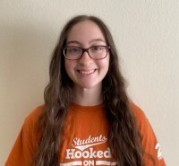Cultural capital and how to level the playing field

Financial decisions play a major role in shaping the quality and trajectory of our lives. A bad credit score, a defaulted loan, or too much debt can plague a person for years, even decades to come. The ability to make advantageous financial decisions is a crucial life skill, yet the dearth of financial education has left many Americans woefully unprepared. This poses a question: how do people learn what to do?
Financial education in American public schools differs by state. According to CNBC, only 1 in 4 high school students will have taken a personal finance class by the time they graduate, and only 8 states require this class in order to receive a diploma. The other 75% of students who don’t learn about financial health in school will most likely develop their financial acumen through other sources such as cultural capital.
Cultural capital encompasses the knowledge, learned behaviors, and skills that a person uses to showcase their cultural awareness or understanding, as well as their social class. It’s learned from the people around you, oftentimes parents and authority figures, but by peers too. This can include financial advice, strategies, hidden knowledge, and more. While cultural capital isn’t in itself a bad thing, when used in place of quality, accessible and consistent financial education, it’s a recipe for inequity.
Consider this: the 75% of students who don’t learn personal finance in school need to learn it somewhere else. Some of them will turn to their parents to absorb their knowledge, but the cultural capital passed down there is highly inequitable — each person’s background and knowledge is different and they will teach different things. This fractures what different students learn about finances and deepens divisions and inequity. Worse yet, another portion of that 75% won’t have trusted individuals from whom to absorb cultural capital, so they will turn to social media or other less reputable sources to learn.
The inequity of cultural capital and lack of accessible, consistent financial education has led to continuously decreasing levels of financial literacy, drastically affecting financial health at large. But there’s a solution!
By partnering with Zogo to provide financial education, CU’s have the opportunity to level the financial playing field and bridge the gaps in financial literacy. With Zogo’s innovative educational tools, your credit union can play the role of trusted leaders that pass down equitable cultural capital to your communities.
To learn more about how Zogo is leveling the playing field by providing accessible, engaging financial education, contact us in the form below or request a demo.





